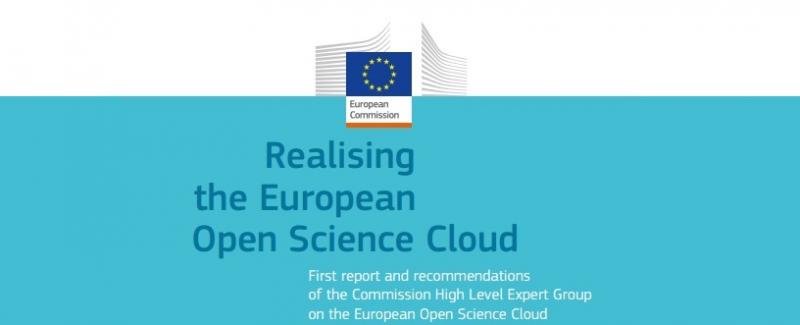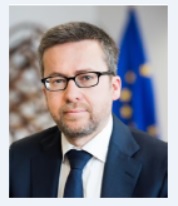
 |
The High Level Expert Group on the European Open Science Cloud (HLEG-EOSC) released its report “Realising the European Open Science Cloud” on 10 October 2016.
The members of the HLEG-EOSC invested their knowledge and expertise to define 15 specific recommendations on the preparatory phase for designing the European Open Science Cloud. Covering Policy, Governance and Implementation these recommendations should guide the actors of the European Data Infrastructure, European Cloud Initiative and the European Open Science Cloud Pilot (due to be launched in January 2017). |
|
A set of bold recommendations
Commissioner Carlos Moedas, the driver behind the EOSC, has made the realisation of this central infrastructure to support Open Research Data and Open Science in Europe one of his main priorities. "I asked the High Level Expert Group to provide advice on the governance and the funding of an Open Science Cloud and to be bold in their recommendations. Among other recommendations, they propose a deep rethinking of the way scientific data is funded and a sea change of the professional careers of what they call 'core data scientists'. Such recommendations deserve detailed consideration by the scientific community and other stakeholders."
|
 |
 |
Actions needed NOW
The data deluge and digital revolution are no longer new concepts but the pace at which these phenomena are advancing is not fast enough for the challenges facing data scientists and data managers as well as the producers of data themselves. As Barend Mons, Chair of the HLEG-EOSC states in the preface “The challenge is clear to us: if we do not act, there might be a looming crisis on the horizon. The vast majority of all data in the world (in fact up to 90%) has been generated in the last two years. Computers have long surpassed individuals in their ability to perform pattern recognition over large data sets.
|
| Scientific data is in dire need of openness, better handling, careful management, machine actionability and sheer re-use. One of the sobering conclusions of our consultations was that research infrastructure and communication appear to be stuck in the 20th century paradigm of data scarcity." | |
So where do eInfrastructures like EUDAT fit into this picture? How are and will they support the realisation of this infrastructure?
 |
EUDAT is a pan-European data infrastructure operating across Europe since 2011. It is a collaboration of European service providers, both generic and thematic, and research communities who have designed, developed, implemented and are running a European e-infrastructure of integrated data services and resources to support research. |
EUDAT partner organisations are fundamental to the realisation of this EOSC and many of them are involved in the pilot project, tasked with the responsibility to design the EOSC starting from January 2017 so that by 2020 the HLEG-EOSC members wish is realised – an EOSC by 2020.
Read the report and understand how the future open science and open research data infrastructure will be shaped.
The HLEG-EOSC members, chaired by Barend Mons, are Paul Ayris, Jean-Yves Berthou, Rachel Bruce (Rapporteur), Stefanie Lindstaedt, Anna Monreale, Yasuhiro Murayama (Observer, Japan), Caj Södergård, Klaus Tochtermann, Ross Wilkinson (Observer, Australia).
